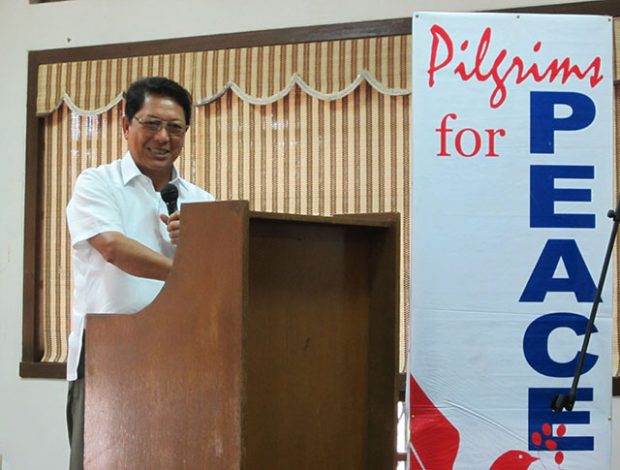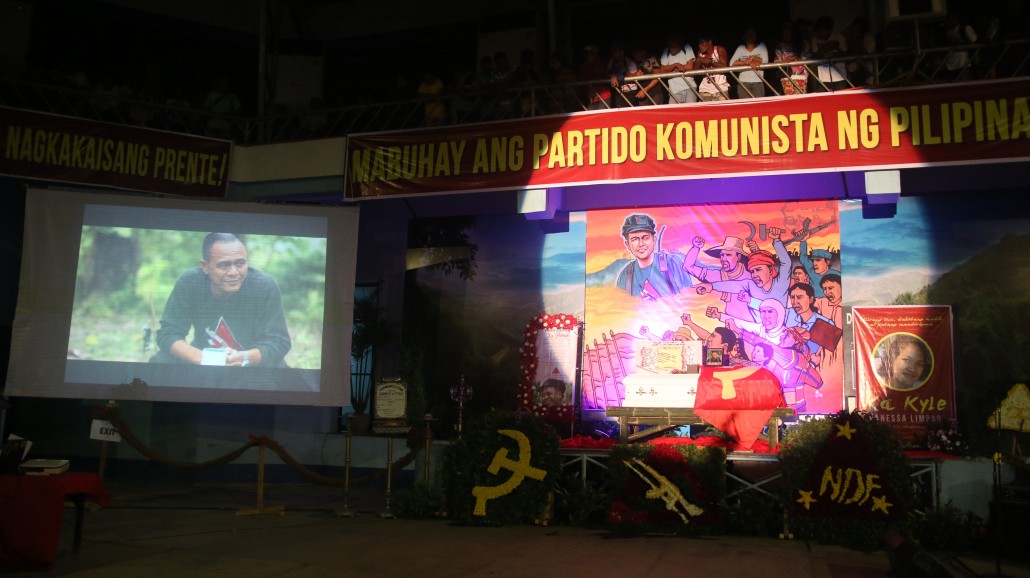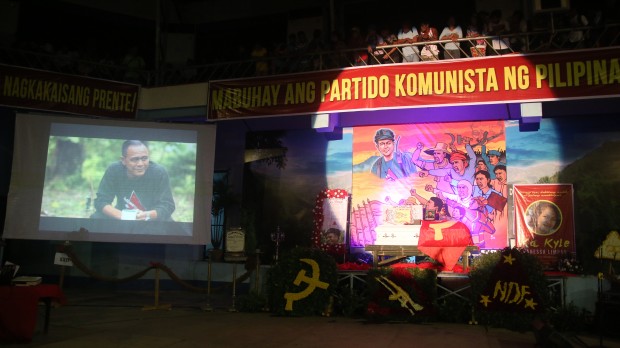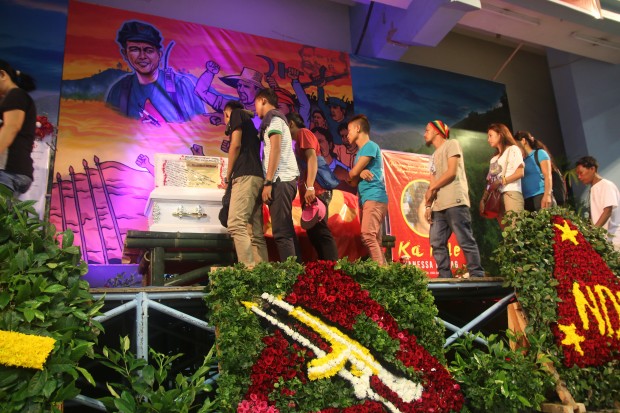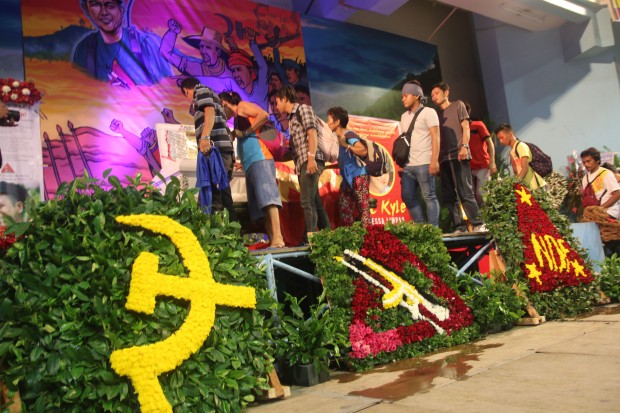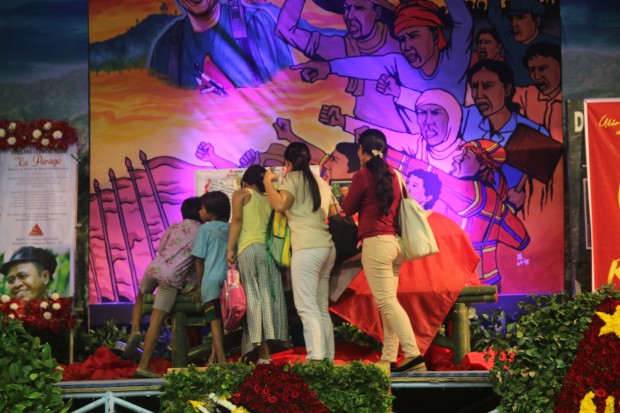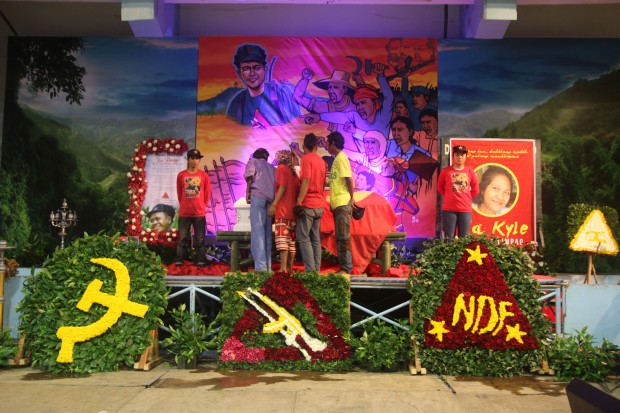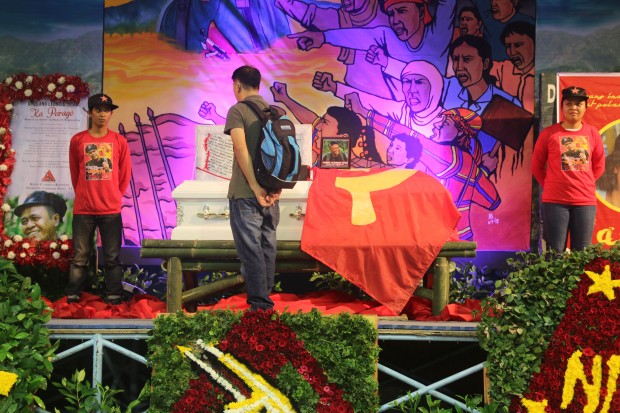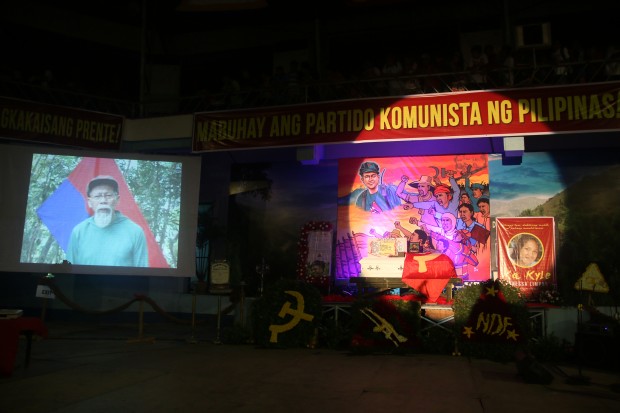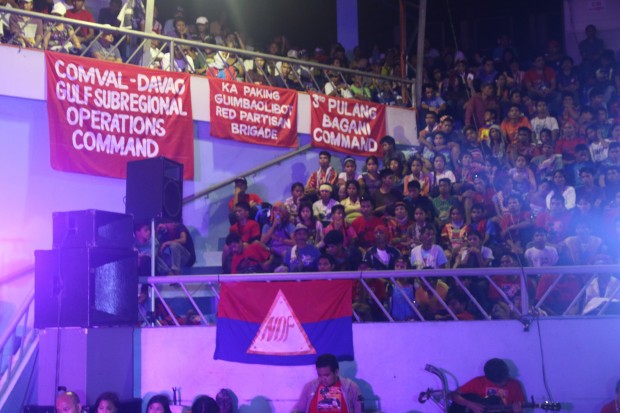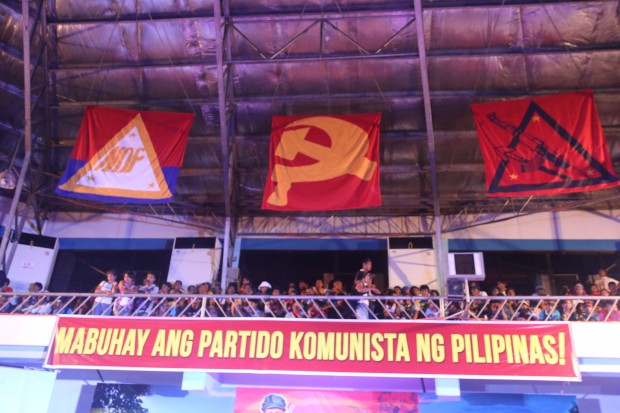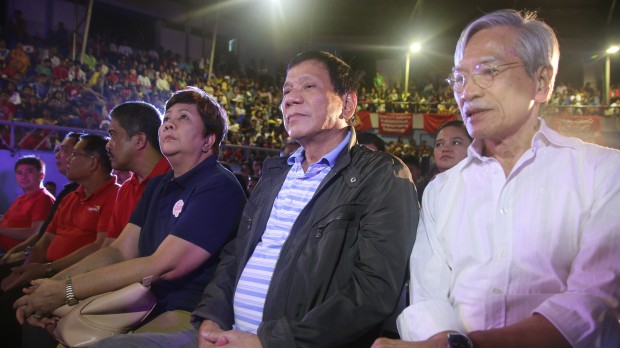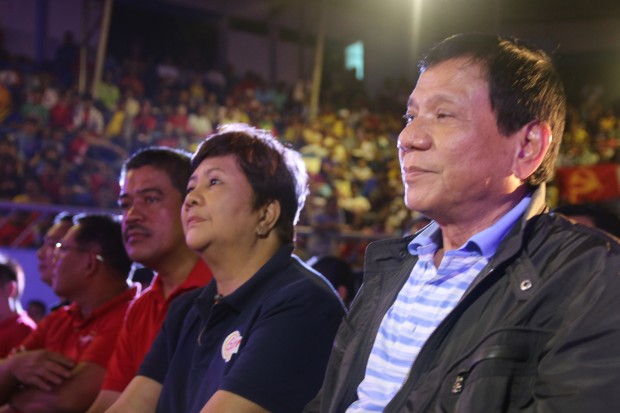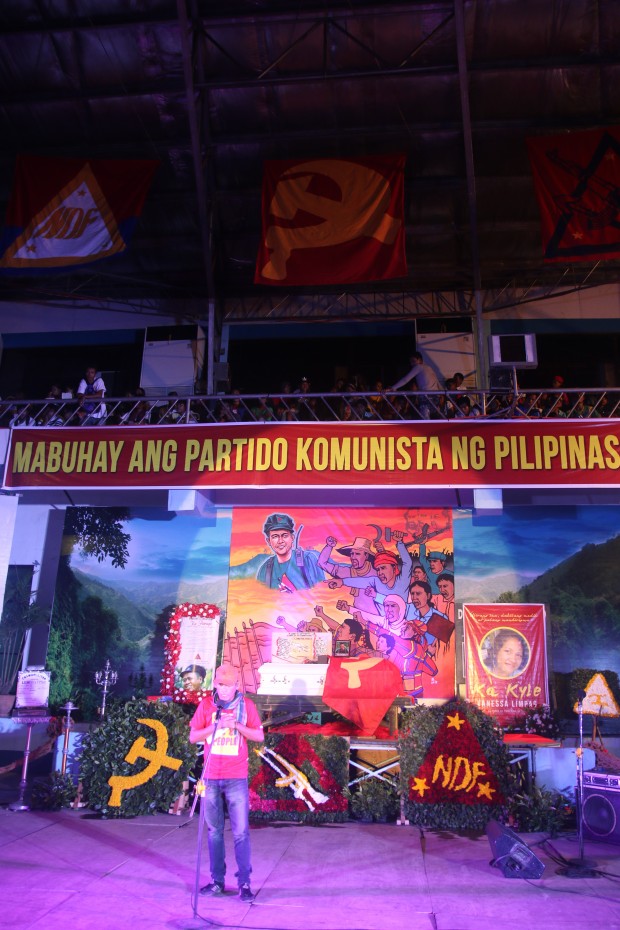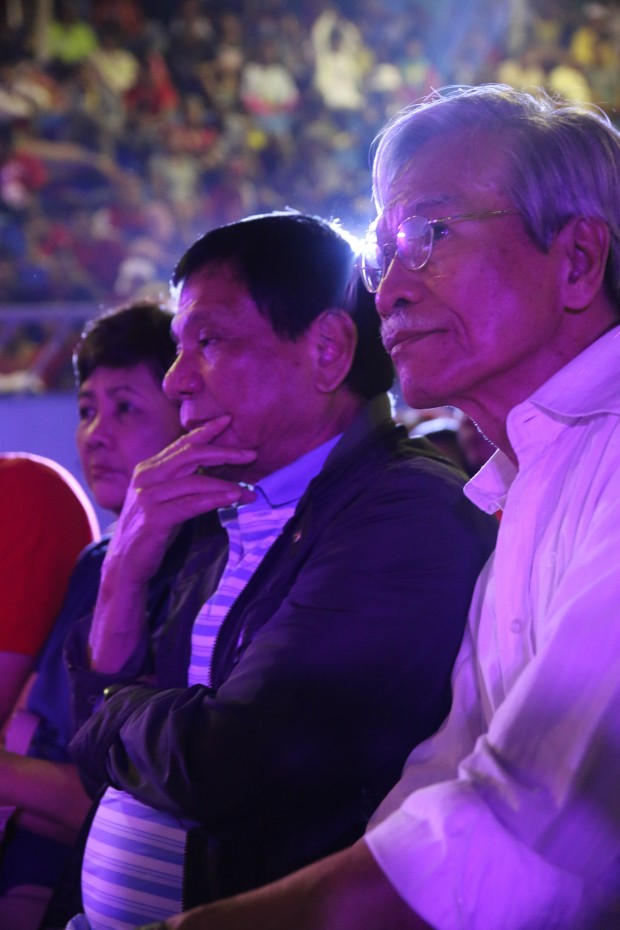The right is always the party sector associated with the interests of the upper or dominant classes, the left the sector expressive of the lower economic or social classes, and the center that of the middle classes. Historically this criterion seems acceptable. The conservative right has defended entrenched prerogatives, privileges and powers; the left has attacked them. The right has been more favorable to the aristocratic position, to the hierarchy of birth or of wealth; the left has fought for the equalization of advantage or of opportunity, for the claims of the less advantaged. Defense and attack have met, under democratic conditions, not in the name of class but in the name of principle; but the opposing principles have broadly corresponded to the interests of the different classes. — Robert M. MacIver, The Web of Government (1947)
Rodrigo Duterte, longtime mayor of Mindanao’s premier city, Davao, will be the sixteenth president of the Republic of the Philippines upon his inauguration on 30 June 2016. He is a conundrum to many people both to the left and right of the Philippine political spectrum.
For those on the Right who support him — who comprise the socio-economic elite, the dominant classes, the status quoers, the political conservatives, and reactionaries — Duterte is what the ruling system needs to “fix” what is broken and in so doing maintain and strengthen it further.
During the campaign, they lapped up his diatribes against rampant criminality especially drug abuse. They applauded when he railed against corruption in government. They cheered when he denounced incompetence and the lack of political will to crack down on both. They jeered with Duterte when he spat out the Aquino administration’s “Daang Matuwid” catchphrase.
For the Rightists who believe in Duterte, he is just what the system needs at this time. Not so much to bring about any substantive changes, but to act as the charismatic demagogue who can make the people believe that the system can still be fixed and that he is the one to do it.
Whether they are gleefully cheering Duterte on or warily accepting his ascent to the presidency despite his pedestrian language, controversial record, and association with the Left, it is mainly because he appears to have succeeded more than any of the other presidential candidates in doing so.
For one, his law and order tag line, while neither new nor original, resonated with even the lower to middle income classes. Those who live hardscrabble lives are much more vulnerable to being victimized by the anarchy, violence and rough-and-tumble of the mean streets of the country’s cities. The upper and elite classes who live in exclusive subdivisions, work and play in highly-secured environs, and travel using tinted, air-conditioned luxury vehicles are relatively spared the aggravations of petty criminality and street-level lawlessnes.
The Leftists, more specifically the Makabayan bloc of progressives in Congress, officially supported Duterte’s closest rival, Senator Grace Poe, but saw many of its avowed constituency either gradually shifting to Duterte or, as was the case in Davao City and most of Mindanao, stubbornly backing Duterte from the very beginning.
It didn’t help that Poe’s campaign failed to energize Makabayan’s mass base and other staunch oppositionists to Aquino’s rule with its weak and halting critique of the outgoing administration. Poe’s fairly progressive platform she shared with Makabayan was not highlighted during her campaign and did not quite make its mark in the public consciousness. Poe’s slogan “Puso at Galing” could not sustain its feel-good vibe as the campaign polemics heated up and rivals had to starkly differentiate themselves from the Aquino-backed candidate, Mar Roxas.
In the thick of his campaign, Duterte agreed to a high-profile role in the release of policemen held captive by the New People’s Army (NPA) or what the latter calls their prisoners-of-war. This was followed by his well-publicized Skype conversation with Prof. Jose Maria Sison, Communist Party of the Philippines (CPP) founding chairman.
Duterte said he would immediately resume peace talks with the underground umbrella organization, the National Democratic Front of the Philippines (NDFP) representing the CPP, NPA and 16 other revolutionary organizations should he win. He has even stated that he is open to entering into a “coalition” with them. He has also unabashedly described himself as a “Leftist” and “socialist.”
Upon his victory in the presidential race, he announced his willingness to set aside four Cabinet positions — labor, agrarian reform, social work and environment and natural resources — to be filled by nominees of the CPP.
These pronouncements taken together with his record of non-antagonistic and, even more so, friendly ties with the New People’s Army in Davao City, as well as support for the Leftist movement in general, underscore three aspects of Duterte that distinguish him from other run-of-the-mill bourgeois politicians.
First, he does not harbor a rabid, anti-communist bias having had exposure to revolutionary concepts and organizations since his youth. He does not consider revolutionaries as terrorists nor traitors but as patriots who are seeking radical societal change for the good of the majority of the people. While his views may not coincide completely with the communist-led movement, he recognizes that the objective conditions of social injustice and vast inequality are the fertile ground on which the entire national democratic movement thrives. He shows respect for the movement’s leaders; he acknowledges the CPP-NPA-NDFP as a significant force to contend with.
Second, because he acknowledges the deep socio-economic and political underpinnings of armed conflicts, he knows these cannot be resolved by military means alone. Thus, he has publicly-announced his commitment to resume peace talks with the NDFP until a negotiated political settlement or, even much earlier, an agreement for immediate truce and cooperation is reached.
He has also repeatedly declared his intention to release all political prisoners, most specially the 18 NDFP consultants covered by the Joint Agreement on Safety and Immunity Guarantees and the sick, women and elderly, for humanitarian reasons.
Third, Duterte has a strong, idiosyncratic character manifested in his refusal to kowtow to conventional ideas and norms about how a presidential aspirant or an elected president should behave towards the country’s former colonizer, the US of A; or how the presumptive president should relate to the pillars of the reactionary system — Congress, the Supreme Court and the judiciary, the civilian bureaucracy, and the military, the hierarchical church foremost of which are the bishops of the Catholic Church, the big landlords and big business including multinationals and their local comprador partners and dummies.
More than a month away from his inauguration as President of the Republic, Mayor Duterte has stepped up the momentum for change during the transition with statements and decisions no one had expected or predicted. The difficulty in anticipating these lie partly in their being apparently inconsistent or contradictory and irreconciliable, such as continuing the neoliberal economic policies of the Aquino government while offering socio-economic cabinet posts to the communists. But these could also be seen as bold, if unorthodox, yet carefully calibrated measures towards his vision of a reformed “socialist” society while maintaining the tenuous equilibrium between the status quo and reform.
Mayor Duterte has displayed exceptional brinksmanship in proving that an avowed Leftist and Socialist can win and wield the Presidency while reassuring the Right that he will keep his oath to preserve the system. So far, these are positive signs of how well, how fast, and how far he will and can go towards instituting genuine change with the Left behind and alongside his Presidency.
–Carol Pagaduan-Araullo is a medical doctor by training, social activist by choice, columnist by accident, happy partner to a liberated spouse and proud mother of two. Her column STREETWISE is originally published by BusinessWorld. http://www.m.bworldonline.com/m_content.php?section=Opinion&id=127956)

